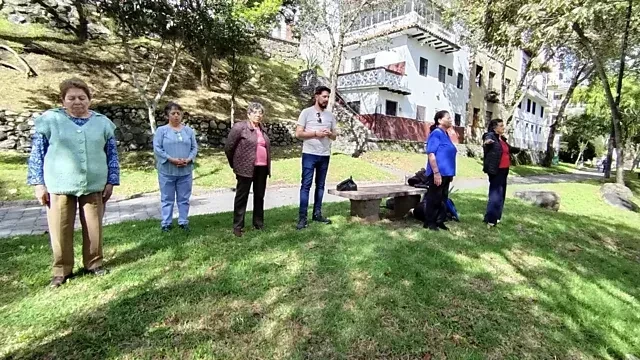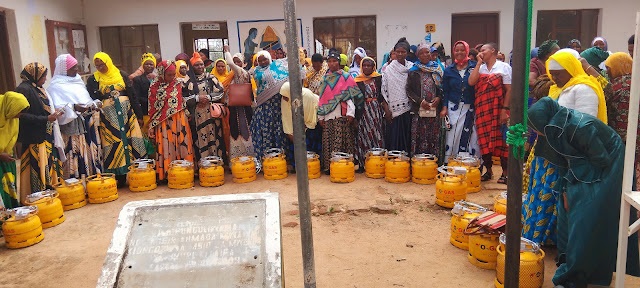‘Harvest rainwater to combat drought’

ENVIRONMENTAL experts and stakeholders have urged the government to adopt a collaborative approach to combat the effects of drought, including the use of modern technologies for water harvesting and storage, food preservation and the promotion of natural habitat conservation.
The advice comes two weeks after a report by the United Nations Convention to Combat Desertification (UNCCD), focused on the global land drying threat, examining regional and global drought trends and future prospects.
It highlighted that Tanzania and South Sudan are facing rapid drought conditions compared to other countries in the East Africa sub-region, when launched on December 9 at the 16th UNCCD conference of the parties (COP16) in the Saudi capital of Riyadh.
It raised concerns on increasing global frequency of droughts, as the trend of worsening drought leads to significant ecological damage, including the loss of soil fertility, directly affecting agriculture.
Prof. Pius Yanda, a climate change expert at the University of Dar es Salaam, affirmed that preventing drought from occurring in Tanzania is challenging due to already existing impacts.
To mitigate effects of drought and desertification, the relevant departments need to develop strategies to enhance resilience across the country, he stated, pointing at the need for ensuring that when the rains are abundant, food production is maximized and preserved for periods when rainfall is insufficient.
He stressed the need for the government and stakeholders to map out the use of modern rainwater harvesting technologies to meet domestic and livestock water needs.
This could help prevent conflicts that arise due to drought, cattle deaths and widespread hunger, while the government gets prepared to handle potential conflicts arising from drought, he further stated.
Water needs between farmers and pastoralists ought to be handled in ways that benefit all parties equally, the don intoned in an interview.
He also pointed at the need for the government to address the issue of urban migration, contributing to overcrowding in cities and exacerbating urban water scarcity.
Fredy Kwezi, the Tanzania Sustainable Development Initiative (TSDI) director, noted that despite significant efforts by the government and environmental stakeholders to plant trees and combat climate change, the outcomes are massively unsatisfactory.
The lack of success in the tree planting focus is poor follow-up on the growth and maintenance of the trees, a sentiment widely shared at the COP16 where he was part of the country’s delegation.
Many tree-planting projects fail because stakeholders plant the trees, take photos and then abandon them without ensuring their survival, he asserted, hinting at the need to involve experts in tree planting initiatives.
They will help to ensure the right species are planted in the right areas, he said, elaborating that trees that thrive in Njombe may not do well in Dar es Salaam, and those suited for Coast Region may not survive in Mbeya.
He also suggested that land use planning could serve as a solution to mitigate climate change effects, as proper land management prevents soil erosion, thus lessening drought effects.
Nyendo Kinyonga, an acknowledged activist with the Human Dignity and Environment Care Foundation (HUDEFO) and recently training communities in Pangani District, Tanga Region on circular economy, underlined the need for greater education on drought and its causes.
This should be conducted at the family and community level to enable numerous communities to take proactive measures rather than relying solely on centrally initiated projects, she said.
Everyone has a role to play in addressing the growing drought problem, she stated, urging that farmers return to traditional farming methods that do not rely on chemical fertilizers, as overusing pesticides damages the soil and accelerates drought.
Sarah Pima, the HUDEFO director, highlighted the need for a collective effort to address drought across the sub-Saharan region, insisting that Tanzania needs robust policies to combat desertification.
This includes improving the conservation of natural vegetation and existing forests, rather than banking on tree planting, when the public takes up the issue of desertification and drought as an imminent threat.
She appealed for the implementation of climate change mitigation strategies in a rapid manner before the situation worsens further.
The UNCCD report notes that drought is a leading cause of land degradation, affecting upwards of 40 percent of the world’s fertile land, resulting in reduced agricultural productivity and food shortages.
It also links increasing droughts in Africa to a 12 percent decline in national GDP between 1990 and 2015, as an aspect of economic challenges caused by land degradation.
Under the nationally determined contributions (NDC) framework, Tanzania has committed to reducing greenhouse gas emissions by 30 percent to 35 percent across all economic sectors by 2030, compared to pre-declaration trends.
Top Headlines
© 2024 IPPMEDIA.COM. ALL RIGHTS RESERVED






















